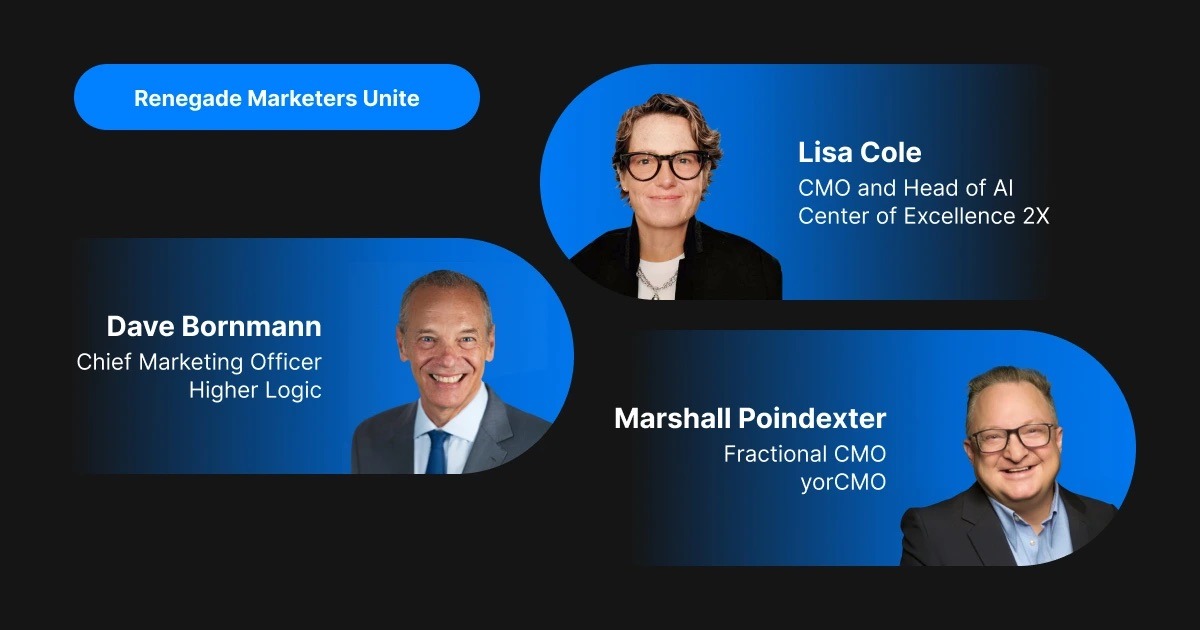February 10, 2020 | Blog
5 questions to ask before buying more martech

Once upon a time, martech was the easy answer for CMOs who were facing stagnating budgets and trying to do more with less. Tools brought features and capabilities unheard-of, and helped you work faster, smarter, and market better than you ever could before. But today, as we’ve moved past the hype and “peak martech”1, it’s more likely the case that you have far more tools than you need, and some that don’t quite deliver as promised.
According to Gartner’s 2019 Marketing Organization Survey, almost a quarter (24%) of CMOs say that martech strategy, adoption, and use is one of the top three challenges to driving customer acquisition or loyalty due to insufficient budgets and resources—which is why one of their recommendations is to hire martech generalists to address the skills gap. Coupled with the fact that research shows only 61% of the martech stack is being utilized2, martech’s place within the marketing engine starts to look shaky.
We’re not disputing the efficacy of tried-and-trusted tools that form the basis of a martech stack like Salesforce, Marketo, or anything from the Google-Facebook duopoly. But when it comes to the shiny new toys, the new kids on the block that are trying to revolutionize the martech landscape, it’s important to remember that martech isn’t magic.
There’s a misconception that martech is a silver bullet—build the perfect stack and you’ve “solved” your marketing function. While it’s true that great tools enable great work, it’s a fool’s errand to think that there exists an interconnected web of tools and tech that could guarantee success. Wowed by a sales spiel, it’s easy to be seduced into thinking that tech can get you from A to Z, when the reality is that it takes you from B to Y. The human component is what takes you from A to B and the all-important Y to Z.
5 questions to ask before buying more martech
Before you embark on a martech shopping spree, ask yourself the following questions:
1. What is the problem you’re trying to solve?
It may sound a too-obvious starting point, but since marketing often runs on hype, it’s important to reiterate. Without laying out in clear detail what the problem is, solution-hunting is doomed to fail. Before even evaluating different martech options, iron out the parameters of the problem you’re trying to solve—otherwise, one too many convincing sales calls will have you falling into the buy-first-figure-it-out-later trap that snares far too many CMOs.
2. Have you considered the total cost of ownership?
The appeal of a martech tool can be its cost. A license fee often seems more cost-effective in the long run than hiring additional resources to achieve an objective. However, the cost-benefit analysis isn’t that simple. You must consider the ancillary costs of martech, such as the hard-to-gauge cost of integrating a new tool into your existing systems. How much retrofitting will you need to ensure the data inputs and outputs match up? How much productivity will you lose because teams are tied up figuring out how to use the new tool while still running marketing operations on existing tools? How steep is the learning curve, and how long will it be until you see concrete ROI? These are the devilish details you don’t encounter until it’s too late.
3. How will this new tool fit in with how things are currently done?
CMOs may be the decision-makers who pull the trigger on a martech purchase, but they’re certainly not the ones that’ll own it day-to-day. A buying committee sounds scary, conjuring up images of red tape, but without sound consultation of relevant personnel, acquiring martech is futile. At the very least, a head of marketing operations should weigh in so that there’s a clearer idea of how the potential new tool will fit into the existing suite of tech and processes. Otherwise, you risk either introducing an element of confusion that will hamper productivity and efficacy; or worse, acquire an ill-fitting piece of technology that doesn’t get utilized to its fullest and eventually becomes a drain on resources.
4. How will you measure effectiveness and impact?
Improvement is impossible to demonstrate without a metric. If you don’t have KPIs in play that will gauge the effectiveness of your new martech, you’re doomed to owning a white elephant. Unless you can accurately and conclusively measure the impact of investments, what you’re doing isn’t innovation—it’s gambling.
5. Is martech the answer?
Adding tech invariably adds complexity, and the average martech stack is already quite complex. Instead of adding new tools that add further layers of complication, consider the alternative. A lot of the time, the results that martech helps you achieve can be achieved through manual methods, often to a similar if not superior level. The only drawback is that sometimes this isn’t cost-effective from the staffing perspective. What most CMOs need is an innovative way to stretch their marketing dollars further, and gain expanded operational capabilities.
That’s where marketing as a service (MaaS) comes to the fore. With the more practical economics of an offshore model, you can avoid the martech trap and instead tap resources that are skilled in execution, leaving you free to focus on strategic initiatives.
The 2X advantage
We’re intimately familiar with the common pitfalls in implementation, integration, and day-to-day operations, and the breadth of our experience in execution gives us a unique vantage point—one that a run-of-the-mill consultancy can’t offer.
Are you thinking of expanding your martech stack? Why not explore an alternative first—get in touch to see why MaaS could be the answer you didn’t know you were looking for.
1. Marketing Technology Landscape Supergraphic (2019): Martech 5000 (actually 7,040)
2. Marketing Technology Survey 2018: Martech Adoption Surges as Brands Pursue Personalization, Measurement and Advertising Accountability



